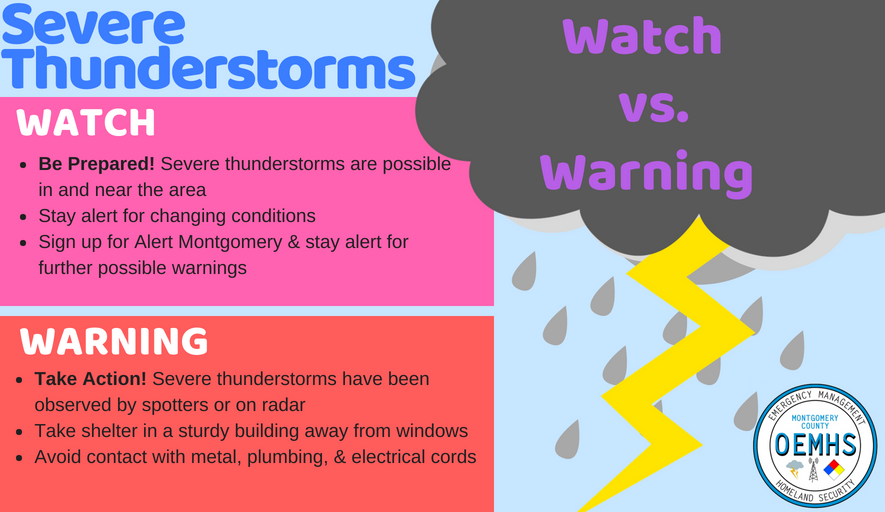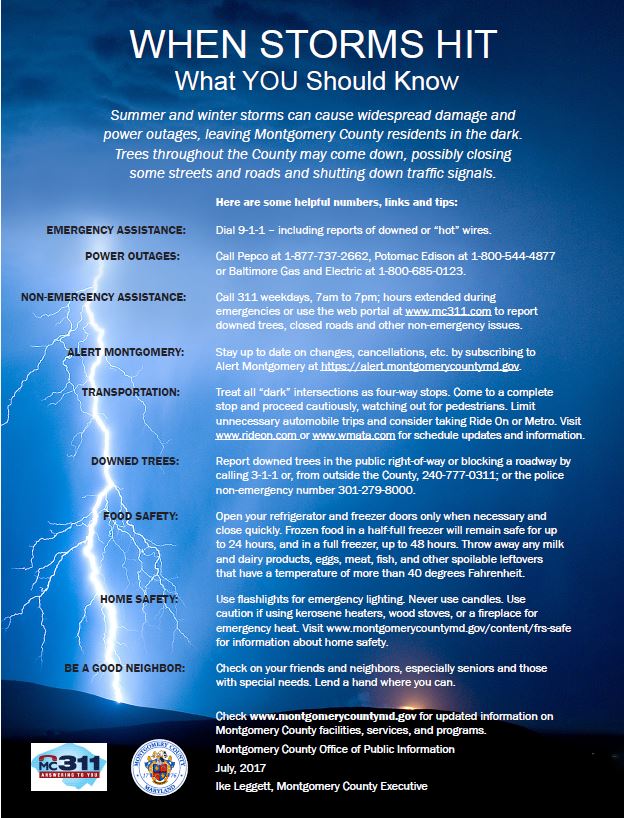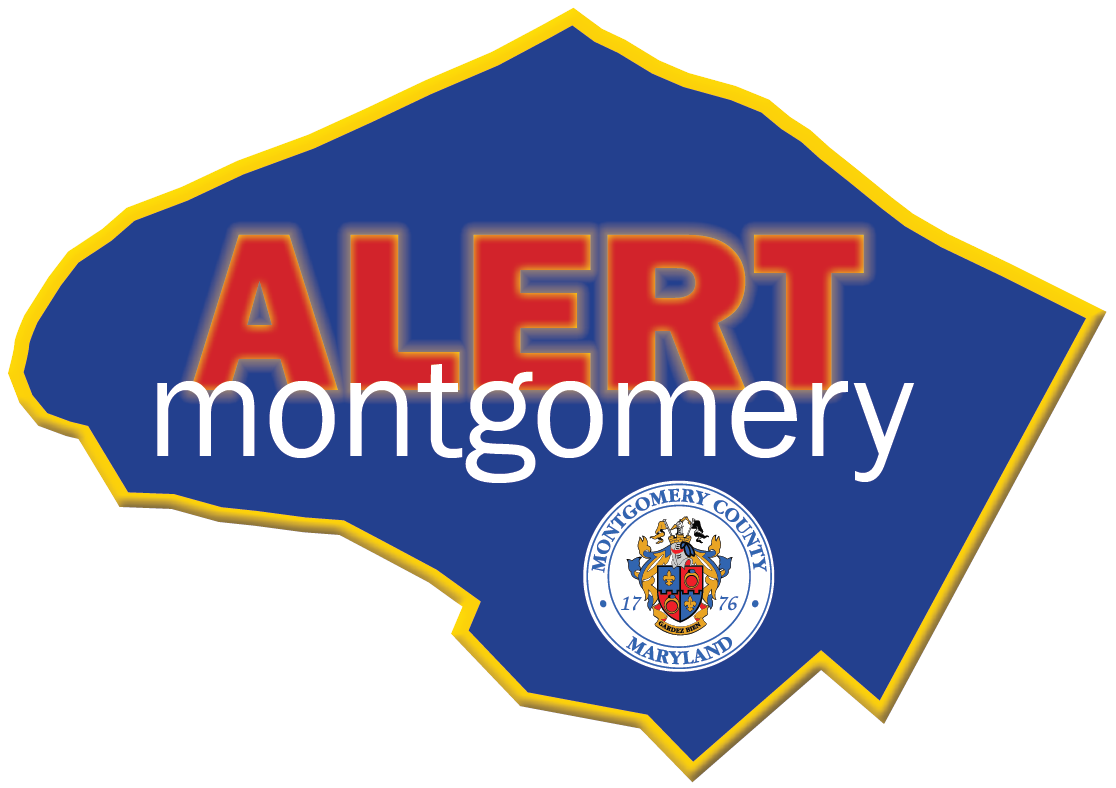Severe Thunderstorms
Severe weather, including lightning, hail, flooding, and strong wind, is most common during the spring and summer months. Thunderstorms can occur singly or in clusters or lines and typically produce heavy rain for a breif period. Occasionally, tornadoes can also occur.
Remember:
- A Severe Thunderstorm Watch means that there is a possibility of storm activity in the area.
- A Severe Thunderstorm Warning means that activity is occurring or will occur soon; take shelter immediately.

Prior to Severe Thunderstorms
- Ensure that you have enough food water, medication (if needed) and batteries. Because power is often lost during severe storms, food that does not require cooking should be considered. Get tips on building your emergency kit.
- Check portable radios, smoke detectors, and flashlights to ensure they are properly operating and that the batteries are fresh.
- Stay tuned to local weather and news reports and remain alert for changing weather conditions.
- If you are located in a low-lying area and flooding is anticipated, remove furniture and valuables from the areas that are prone to water accumulation.
- If strong winds are predicted (in excess of 70 miles per hour), consider boarding up your windows to prevent breakage. Also, trash cans and other items around the yard should be taken indoors or secured to prevent the wind from carrying them away.
- Run necessary errands before severe weather begins; don't wait until the storm begins to venture outside.
- Ensure that your vehicle is fueled. Don't drive during the storm unless it is necessary. If you must, stay away from roads near rivers and streams and areas where flooding may occur. Never cross over a roadway that has flowing water.
During Severe Thunderstorms
- Stay indoors and away from windows. If a tornado or hurricane-force winds are predicted, relocate to the basement or a room that has no windows.
- If outside, seek shelter in a strudy building immediately.
- Stay tuned to local weather and news reports for emergency information.
- If power is lost, do not use candles for lighting; use a flashlight.
- Avoid contact with corded phones and devices including those plugged into electric for recharging. Cordless and wireless phones not connected to wall outlets are OK to use.
- Avoid contact with electrical equipment or cords. Unplug appliances and other electrical items such as computers and turn off air conditioners. Power surges from lightning can cause serious damage.
- Avoid contact with plumbing. Do not wash your hands, do not take a shower, do not wash dishes, and do not do laundry. Plumbing and bathroom fixtures can conduct electricity.
- Do not lie on concrete floors and do not lean against concrete walls.
- Avoid natural lightning rods such as a tall, isolated tree in an open area.
- Avoid hilltops, open fields, the beach or a boat on the water.
- Take shelter in a sturdy building. Avoid isolated sheds or other small structures in open areas.
- Avoid contact with anything metal—tractors, farm equipment, motorcycles, golf carts, golf clubs, and bicycles.
- If you are driving, try to safely exit the roadway and park. Stay in the vehicle and turn on the emergency flashers until the heavy rain ends. Avoid touching metal or other surfaces that conduct electricity in and outside the vehicle.
After Severe Thunderstorms
- Do not use fresh food that has come in contact with flood waters. If refrigeration is lost because of a power outage, perishable foods such as meat and milk products may not be suitable to eat and should be discarded.
- Even though the storm has passed, hazardous conditions may still exist, including downed power lines, trees, and flood waters. Call utility companies to report downed lines and power outages.
- Never drive through a flooded roadway. Turn around, don’t drown!
- Stay away from storm-damaged areas to keep from putting yourself at risk from the effects of severe thunderstorms.
- Help people who may require special assistance, such as infants, children and the elderly or those with access or functional needs.
Remember to listen to the radio and sign up for Alert Montgomery to stay informed and receive further instructions in the event of an emergency.

For more information on preparing for severe storms visit Ready.gov


